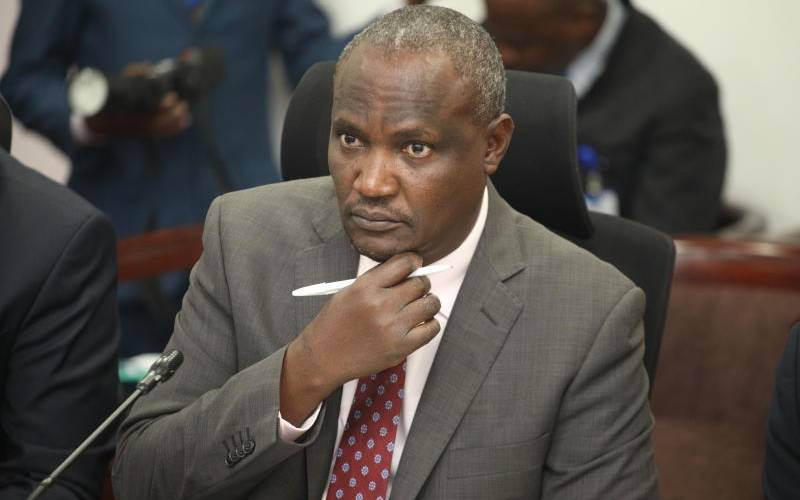One of the most significant developments in governmental process has been the recent directive to shift from manual to electronic procurement. In April, Treasury CS John Mbadi launched the electronic public procurement system.
Through several circulars, the latest by the Public Procurement Regulatory Authority (PPRA), all public procurement entities were mandated to undertake their procurements through the electronic government procurement system (e-GPS). The PPRA circular in August went as far as providing that any procurement undertaken outside the e-GPS would not only be an offence but would be surcharged on the procurement officer concerned.
Let me start by recording my absolute support for electronic procurement. Since the Integrated Financial Management System (IFMIS), was introduced around 1991, it was always intended that it would be an end-to-end system and would thus incorporate a procurement module. Implementing this idea has however been difficult. It is an idea which would, if one places the technical challenges aside, revolutionalise procurement. It would make it more efficient, cutting out the voluminous time spent on manual entries and reviews. It would be transparent, accountable and verifiable. While it would not eliminate the influence of middlemen and procurement brokers, it would reduce their influence. It is not surprising that attempts to implement the programme have met severe headwinds over the years. Anecdotal evidence points to sabotage even within the Treasury including allegations that even the current technical problems identified with the programme are deliberate acts of interference. I will leave that to better sleuths. My concern with the e-GPS programme is with the requirement that County governments procurement departments must also use it. However well-meaning and beneficial in terms of improving efficiency and transparency of the procurement process, it raises critical constitutional questions.
Follow The Standard
channel
on WhatsApp
Like IFMIS, the e-GPS is operated by the National Treasury, a department under the National Government. Which brings one to Article 6(2) of the Constitution. This article makes the important point that County governments are distinct legal entities from the National government. Article 189 buttresses the distinctiveness point by requiring that each level of government performs its functions and exercise its powers in a manner that respects the functional and institutional integrity of the other level.
These two provisions mean one level of government cannot abrogate for itself the right to determine how the other level exercises its powers and undertakes its functions. Consequently, the manner in which County governments perform their functions, including how they procure for goods and services, is their exclusive jurisdiction. Article 6(2) however recognises the two levels of government as interdependent and there are occasions when good sense, efficiency and propriety demands that they coordinate their activities. The Article then requires that they conduct their relations in a spirit of cooperation and consultation.
These two principles, the distinctiveness of county governments and requirement for consultation and cooperation in view of interdependence should have informed implementation of the e-GPS programme. Before mandating it on county governments, there ought to have been an intergovernmental agreement on its operationalisation. Central to this agreement would have been issues of management and oversight of the programme, preferably within an intergovernmental arrangement.
It is bad enough that counties are at the mercy of the Treasury through IFMIS, and I will have a paragraph on this in my memoirs, but to now subject all their procurement processes through the National Treasury violates the very core of the devolved system. So, while one must support a shift to electronic and transparent procuring, adherence to constitutional principle must not be sacrificed on the altar of convenience.
Both levels of government must find a way that enables implementation of the much needed programme, but in a manner that respects the integrity of County governments and does not make them an appendage of the National government. I am by nature a pragmatist and refuse to be tied in knots by legal purity.
But I can sense when the camel has not only entered its nose and front legs into the tent and is now headed to throwing the owner out. Let good sense prevail. Let this not be another stone on the neck of an already struggling devolved system.
The writer is an advocate of the High Court
Follow The Standard
channel
on WhatsApp
By Kamotho Waiganjo
